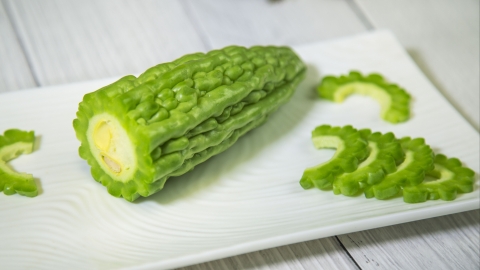What substances are incompatible with Sophora flower (Honey locust flower)?
Generally, pagoda flower (Sophora japonica flower) is considered incompatible with certain foods such as bitter melon, pork liver, tea, lemon, and pork. Detailed explanations are as follows:

1. Bitter Melon
Bitter melon is cold in nature, and pagoda flower is slightly cold. Consuming cold-natured foods together may exacerbate spleen and stomach coldness, leading to abdominal pain and diarrhea. Individuals with cold constitutions are especially prone to experience chills and indigestion after consumption.
2. Pork Liver
Tannic acid in pagoda flower may bind with iron present in animal livers, affecting iron absorption, thereby reducing its nutritional value, which is particularly detrimental for individuals with anemia.
3. Tea
Consuming pagoda flower with strong tea may interfere with nutrient absorption. The tannins in tea may combine with certain components in pagoda flower to form indigestible substances, thereby reducing its nutritional value.
4. Lemon
Lemon is an acidic fruit rich in vitamin C. According to traditional Chinese medicine, pagoda flower is cold in nature, and consuming it with acidic foods may impair spleen and stomach function, causing indigestion.
5. Pork
According to traditional Chinese medicine theory, consuming pagoda flower together with pork may cause diarrhea or indigestion. This may be because pagoda flower is cold in nature, and pork also has a cooling effect; combining both may increase the burden on the gastrointestinal tract.
Pagoda flower has incompatible interactions with several foods; however, this does not mean they absolutely cannot be consumed together. In daily diets, moderate combinations can be made to maintain dietary diversity, but attention should be paid to the properties of the foods and individual body constitutions.




